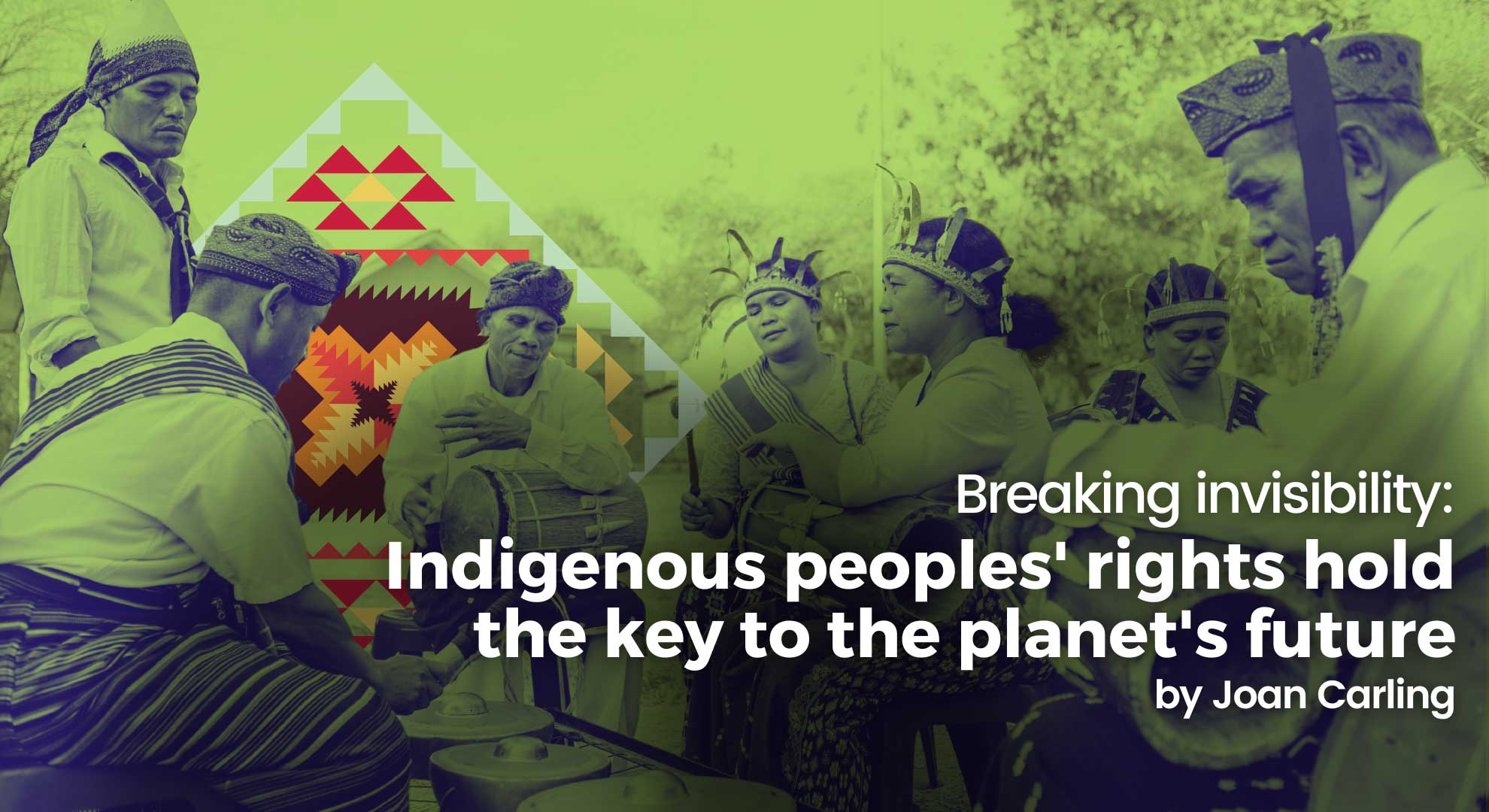
By Joan Carling, Executive Director, The Indigenous Peoples Rights International (IPRI)
More than 100,000 Maasai in Tanzania are facing violent attacks to dispossess them of their lands and undermine their livelihoods. Since June, the situation has escalated and hundreds of Maasai men, women and children have been displaced, seeing the lands they have cared for since time immemorial taken away from them once again in the name of conservation. Those who have dared to raise their voices to defend their lands, livelihoods and cultures have been criminalized.
The history of the Maasai is reflective of the worsening situation of Indigenous Peoples in every corner of the planet as they face increasing threats from conservation and the energy transition to address the worsening climate change. This is the grave reality among the Pygmy, Guarani-Kaiowá, Mahji, and Karen, among many other indigenous peoples all over the world.
Indigenous Peoples have insisted that actions to climate change and biodiversity loss--if done without the respect for and protection of their rights and without transforming the roots of the problem--are nothing more than false solutions and green colonialism.
Although Indigenous Peoples account for only 6% of the world's population, 80% of the planet's remaining biodiversity flourishes under Indigenous Peoples’ guardianship. These areas show greater preservation of ecosystems than those under exclusive governmental or private control.
Conservation and adaptation are in Indigenous Peoples’ DNA since they maintain an intrinsic, spiritual and reciprocal relation with nature.
Meanwhile, an energy transition from a high carbon to a low-carbon world, without drastically changing the world’s unsustainable consumption patterns and highly extractivist paradigm, only leads to increasing marginalization of indigenous peoples. Mining for renewables, dams and renewable projects such as biofuel, geothermal, solar and wind farms, forest conservation projects and protected areas are increasingly driving eviction of Indigenous Peoples from their lands and territories, destroying their livelihoods, undermining their traditional systems, increasing criminalization and rights violations. From 2015 to mid-2022, 883 attacks on indigenous land and environmental defenders have been documented.
The unprecedented participation of Indigenous Peoples across the globe in international summits of states on climate and biodiversity was to draw attention to what is happening on the ground and demand the respect of Indigenous Peoples’ rights in all agreements and actions that will affect them. It also aimed to raise the visibility of their efforts and innovations in conservation and sustainable use and management of different ecosystems.
Through their participation, they seek to break the paradox of being those who suffer the most from the consequences of the climate crisis (and the "solutions") despite being those who contribute the least to it. Likewise, while Indigenous Peoples persevere in protecting the environment, they receive less direct support for climate adaptation and mitigation.
Indigenous Peoples therefore must be recognized and considered as the rightsholders that they truly are. Priority must be given to ensuring legal recognition, respect, and protection of their rights to their lands, forests, territories and resources. In this way, Indigenous Peoples will be treated as genuine and equal partners.
Indigenous Peoples’ rights are human rights that must be respected to guarantee the common aspiration of peoples to live in peace, non-discrimination, and social equity.
As long as Indigenous Peoples’ rights are not recognized, they will continue to be victims of criminalization, dispossession, and unpunished attacks. Stronger accountability mechanisms to end impunity for those who violate Indigenous Peoples’ individual and collective rights must be established. Access to justice must be guaranteed for all those Indigenous defenders and communities who have been victims of attacks and criminalization for defending their rights and territories.
Human rights, climate justice, social justice, accountability, and collective action are key to a dignified life for the present and for a sustainable future. Indigenous Peoples will never give up on this struggle.


